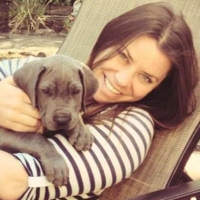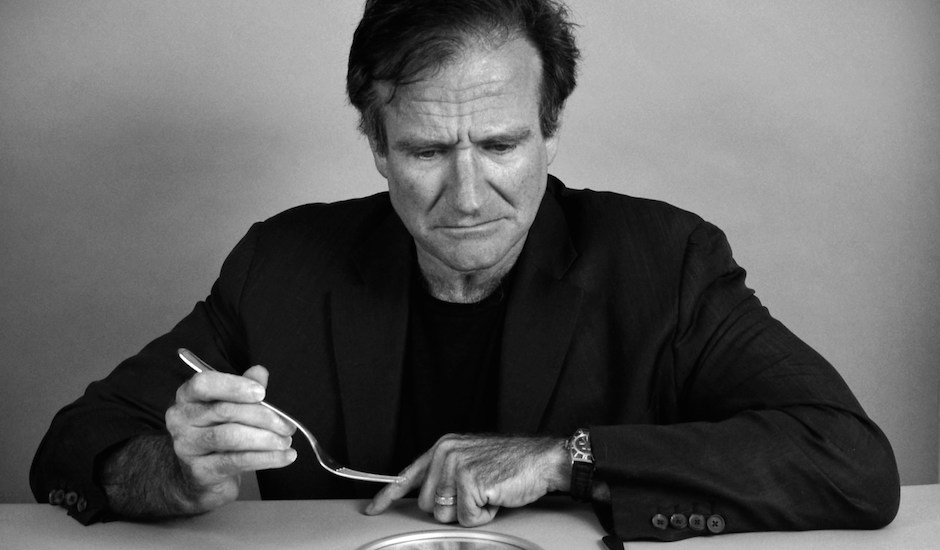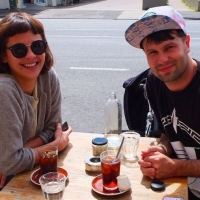 Brittany Maynard & EuthanasiaSome thoughts on the terminally ill brain cancer patient and the right to euthanasia.
Brittany Maynard & EuthanasiaSome thoughts on the terminally ill brain cancer patient and the right to euthanasia.

Helping Friends & Family With Depression
Just some personal experience worth sharing on a day we're all thinking about it.
If there’s one positive that can be taken from the passing of comedy legend Robin Williams today, it’s that hopefully it’ll again raise a bit of awareness towards depression in our society. You've probably (hopefully) already read that kinda sentence a bit today, but I figure there’s no harm in sharing personal experience if it helps you or someone else understand depression a little more, and understand how it might affect those around you – or you personally.
I live with depression every day, but not in the sense that I suffer from what can be a terribly crippling affliction. I don’t have depression, but my partner, my mum, my dad, my sister and some of my best friends do – or have at some stage – suffered from it.
I first became aware of depression in a personal sense when a former partner was diagnosed with it after a year or so of confusing ups and downs in our relationship, not knowing why she couldn’t bring herself to leave the house one night, or catch up with friends, or just get to work that morning, or being angry at me for no particular reason. It was a really confusing and difficult time for both of us – her more so obviously, but me as well. At first I was understanding, but it would at times be frustrating – “Why can’t we just go out tonight?”… “Can we please do something other than lie in bed today and watch TV?”… And so on. And these questions had few answers. And it was sometimes incredibly difficult. You can try be the most understanding partner in the whole world, but it often makes no difference.
She then started doing some research about depression, and after initially fighting the fact she might need to see someone and talk about it (an admission that is a HUGE step for anyone to take), she did. After several different anti-depressant combinations/doses and a couple of different doctors, she finally achieved something akin to balance. It wasn’t an overnight change, she didn’t suddenly have a new found zest for life – her eyes just opened a little wider, and she could get back to doing things that were fairly standard not two or three years earlier. It was still something to be managed, and carefully, but it definitely helped improve many aspects of her life (and her relationships).
I’m not saying medication is the answer, but in this instance – it helped. For me, accepting that I didn’t have the answer to every problem she was facing; that she did indeed need to talk to a professional about her problems, was a difficult thing to accept. When you’re with someone who has depression, sometimes you can and will feel incredibly helpless. Like it doesn’t matter what you say, it won’t help the situation. And to be honest that’s just how it is half the time. Learning to listen is so important. You don’t need a response or answer to every problem someone with depression is facing. You just need to support them, do a bit of research yourself, or even talk to someone yourself.
This experience has proven invaluable as I've grown older, a kind of head start on how I could be the best human being possible with friends, partners or family who suffer from depression. That you don’t always need the answer – and that people with depression aren’t always looking for answers, just someone to listen to, and support them. It made things a little easier when I learned that both my parents, sister and a best friend had started taking anti-depressants, all roughly around the same time. Some of them are still on them, others are not. That’s not to say it’s something you just get over – it’s something my current partner (who started taking anti-depressants before we met) might need to manage for the rest of her life. But it can affect anybody, for any number of reasons, at any time of their life.
You don’t need to understand those reasons, you just need to learn how to support someone who feels this way. It’ll never be perfect – you’ll argue, you’ll get frustrated from time to time – but if you feel like something is a bit off with a friend or family member, just try and listen, be supportive, and help them talk about it. Encourage them to see a specialist – but don’t force them, it can be so difficult to admit you have a problem (this applies to so many other things beside depression).
I’m not saying medication is the answer, I’m not even saying specialists are the complete answer. All I am saying is that YOU are there, YOU can help just by listening, and talking to a friend/family member through how they’re feeling. You don’t need to provide them with resolute answers to all their issues, because quite, frankly it’s impossible. And they might not even want to talk about it, but you can still be around them, close to them.
Obviously I know nothing surrounding the circumstances of Robin Williams’ tragic passing besides Internet chit chat. I hope he had people around him who were supportive, who were there to listen and try to help him. It’s truly awful if that wasn’t the case, but if it was at least he may have had some hope.
You can be that hope for someone – a partner, a family member, a friend – just be open to listening to them. Don’t assume they’re angry or upset at you because you’ve done something wrong. Just listen. And be open to the people around you. Because at the end of the day that’s all we really have.
BEYONDBLUE.ORG is an incredible first starting point for people with depression – but also people who know someone who may be suffering from it, and is looking for how best to support them. If you do, or even think you do – don’t turn a blind eye, just say hey, and ask how they’re feeling.
The author wishes to remain anonymous.
 Brittany Maynard & EuthanasiaSome thoughts on the terminally ill brain cancer patient and the right to euthanasia.
Brittany Maynard & EuthanasiaSome thoughts on the terminally ill brain cancer patient and the right to euthanasia.
 Chat Window To The SoulMeet the Melbourne guy having coffee with every single one of his 1000+ Facebook friends.
Chat Window To The SoulMeet the Melbourne guy having coffee with every single one of his 1000+ Facebook friends.